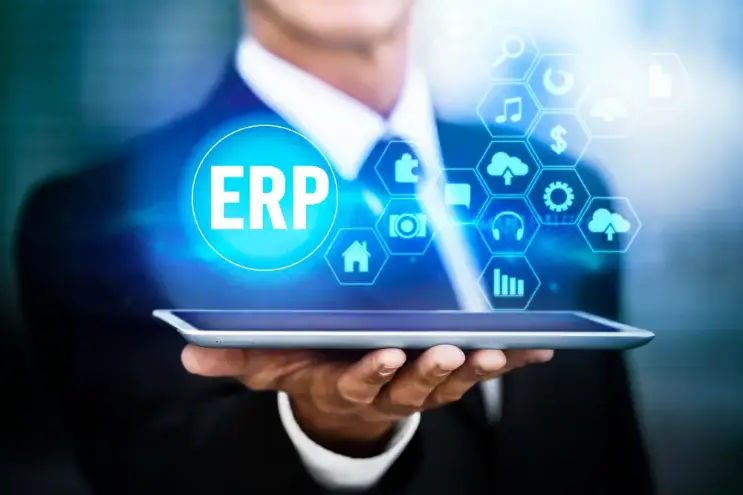But let’s be honest: ERP implementation isn’t always a walk in the park. Without careful planning and execution, it can feel overwhelming. That’s where understanding the ERP implementation process and working with experienced ERP implementation companies comes into play. At SelfERP Inc. , we’ve guided countless businesses through successful ERP rollouts, ensuring minimal disruption and maximum ROI. In this article, we’ll break down the key steps and share best practices to help you navigate your ERP journey with confidence.
Why ERP Implementation Matters
Before diving into the nuts and bolts, let’s talk about why ERP implementation is so critical. Studies show that businesses using ERP systems see a 20% increase in productivity and a 25% reduction in operational costs. These numbers aren’t just stats—they represent real opportunities for growth and efficiency.
But here’s the catch: the success of your ERP system depends heavily on how well it’s implemented. Poor planning or lack of expertise can lead to delays, budget overruns, and even failed projects. On the flip side, a well-executed implementation can set your business up for long-term success.

The ERP Implementation Process: A Step-by-Step Guide
The ERP implementation process may vary slightly depending on your business needs, but the core steps remain consistent. Here’s a roadmap to guide you:
1. Define Your Goals
Start by identifying what you want to achieve with your ERP system. Are you looking to streamline inventory management? Improve financial reporting? Enhance customer service? Clearly defined goals will shape every decision moving forward.
“We knew we needed better visibility into our supply chain,” says Mike R., owner of a regional manufacturing firm. “Defining that goal upfront helped us stay focused during implementation.”
2. Assemble the Right Team
Your ERP implementation team should include key stakeholders from different departments (IT, finance, operations, etc.) as well as executive sponsors who can champion the project. Don’t forget to involve end-users—they’re the ones who will ultimately use the system daily.
3. Choose the Right ERP System
Not all ERP solutions are created equal. Evaluate platforms based on factors like scalability, ease of use, integration capabilities, and cost. At SelfERP Inc. , we often recommend Odoo ERP for its flexibility and modular design, but the best choice depends on your specific needs.
4. Plan Thoroughly
Create a detailed implementation plan that outlines timelines, milestones, and responsibilities. Include contingency plans for potential challenges, such as data migration issues or resistance from staff.
5. Data Migration and Testing
Migrating existing data to your new ERP system is a critical step. Cleanse and organize your data before transferring it, and conduct rigorous testing to ensure accuracy and functionality.
6. Train Your Team
Even the best ERP system won’t deliver results if your team doesn’t know how to use it. Provide comprehensive training sessions tailored to different user groups, and offer ongoing support as they get comfortable with the system.
7. Go Live and Monitor Progress
Once everything is tested and ready, it’s time to go live. Start with a phased rollout if possible, gradually expanding the system across departments. After launch, monitor performance closely and address any issues promptly.
Common Challenges in ERP Implementation (and How to Overcome Them)
Even with the best-laid plans, challenges can arise during the ERP implementation process . Here are some common hurdles and how to tackle them:
1. Resistance to Change
Employees may resist adopting a new system, especially if they’re used to old processes. Combat this by involving them early in the process, communicating the benefits of the ERP system, and addressing their concerns.
2. Budget Overruns
Unexpected costs can derail your project. To avoid this, create a realistic budget that includes contingencies, and work with a trusted ERP implementation company to keep expenses in check.
3. Data Migration Issues
Transferring large volumes of data can be tricky. Ensure your data is clean, accurate, and properly formatted before migration, and test thoroughly afterward.
4. Lack of Executive Support
Without buy-in from leadership, your project may struggle to gain traction. Secure executive sponsorship early on, and keep stakeholders informed throughout the process.

How to Choose the Right ERP Implementation Company
Partnering with the right ERP implementation companies can make or break your project. Here’s what to look for:
- Experience: Choose a partner with a proven track record in your industry.
- Customization Expertise: Your ERP system should fit your unique workflows, not the other way around.
- Post-Implementation Support: Look for a company that offers ongoing training and troubleshooting after the system goes live.
- Transparent Pricing: Avoid vendors with hidden fees or vague pricing structures.
At SelfERP Inc. , we pride ourselves on being more than just implementers—we’re partners in your success. Our team works closely with clients to ensure their ERP systems align perfectly with their business goals.
Real-Life Success Stories
We’ve seen firsthand how proper ERP implementation can transform businesses. Take Sarah T., co-founder of a growing e-commerce brand:
“Before implementing Odoo, we were drowning in manual processes,” she recalls. “Now, everything from order processing to inventory management is automated. Our team is more productive, and our customers are happier.”
Stories like Sarah’s highlight the power of a well-executed ERP rollout. By combining expert guidance with robust tools, businesses can unlock their full potential.
Wrapping Up
Navigating the ERP implementation process doesn’t have to be intimidating. With clear goals, careful planning, and the right partner, you can streamline operations, boost efficiency, and position your business for long-term growth. Whether you’re a startup or an established enterprise, SelfERP Inc. is here to help you every step of the way.
Ready to take the first step toward a smarter, more efficient business? Reach out to us today—we’d love to discuss how we can support your ERP journey.
Order Your Free Consultation!
SelfERP Inc. specializes in implementing Odoo ERP solutions tailored to small and medium-sized businesses. We empower companies to automate processes, enhance productivity, and achieve sustainable growth.